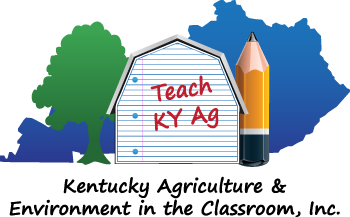Helpful Hints and Agriculture Connections for the Kentucky Conservation Writing and Jim Claypool Art Contest
Since their introduction in 1974 and 1944, thousands of students have participated in the Jim Claypool Art and Conservation Writing contests. The contests educate students on the conservation of soil, water, forestry, and wildlife. Students take the knowledge they have gained and transform it into creative artwork and essays. Students can earn monetary prizes on the county, regional, and state levels. They are also recognized each year by conservation districts around the state.
Kentucky students in grades K-5 are eligible to enter the Art Contest. Kentucky students in grades 6-12 are eligible to enter the Writing Contest.
The contest is made possible by the hard work and dedication of sponsors such as the Kentucky Farm Bureau Federation, the Kentucky Association of Conservation Districts, and 121 conservation districts across the state.
The Kentucky Association of Conservation Districts asked the Kentucky Agriculture and Environment in the Classroom to provide additional resources to help teachers share a positive message about agriculture’s role in conservation practices.
2024 Focus: Forests
Click the image for a PDF with live web address links.
Forests and Farming in Kentucky
Kentucky's diverse landscape, characterized by rolling hills and lush forests, is a testament to the stewardship of its farmers. Beyond their agricultural pursuits, these farmers play a crucial role in preserving and managing the state's natural resources, particularly its forests.
The University of Kentucky Department of Forestry and the Kentucky Division of Forestry have been instrumental in providing farmers with the knowledge and tools necessary for sustainable forest management. These organizations offer a range of services, including forest inventories, management plans, and technical assistance, empowering farmers to make informed decisions about their woodlands.
One of the primary methods employed by Kentucky farmers to protect their forests is through selective harvesting. This practice involves removing mature trees while leaving behind younger trees and saplings, ensuring a continuous supply of timber.
Additionally, farmers often implement controlled burns to mimic natural fire cycles, reducing the risk of catastrophic wildfires and promoting healthy forest ecosystems.
Beyond timber production, Kentucky farmers recognize the multifaceted benefits of their forests. These include improved water quality, wildlife habitat, and recreational opportunities. By preserving their woodlands, farmers contribute to the overall health and well-being of their communities and the state as a whole.
In conclusion, Kentucky farmers are dedicated to safeguarding their forests and ensuring their long-term sustainability. Through the guidance of organizations like the University of Kentucky Department of Forestry and the Kentucky Division of Forestry, these farmers are able to balance their agricultural needs with environmental stewardship, creating a legacy of healthy forests for generations to come.

